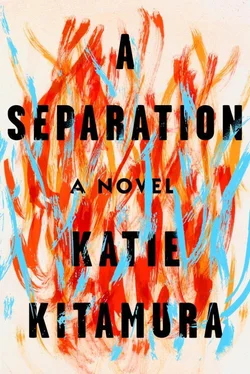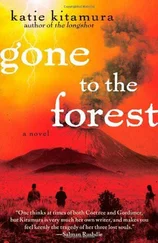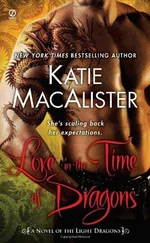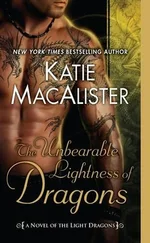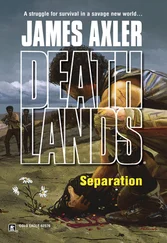It began to rain as we drove out of the village. I asked the driver his name, he said it was Stefano. I asked him if he knew Kostas and Maria. Yes, he said, he had known them his entire life. They had grown up together. Maria in particular—she was like a sister to him. I said that it was a small village. He nodded. Everybody knew everybody, and nobody ever left. I asked if people moved to the cities, to Athens for example. He shook his head. There are no jobs in Athens, the unemployment rate is the highest it has ever been.
Then we sat in silence. Outside, the entire landscape was black from the fires. We drove up through the hills, away from the shore. The vegetation had been decimated, replaced by mounds of burnt charcoal, a lunar landscape. Row after row of the curious forms stretched across the ground. In places there was smoke still rising up from the ground—the fires had been burning as little as a week ago, Stefano said, they had only recently succeeded in putting them out after weeks, after months of burning.
I asked Stefano how the fires had started and he said it was arson. I waited for him to continue. A feud between two farmers, apparently it was over stolen livestock. The livestock wandered all over the place, he said, who knew which animals belonged to whom? One goat ends up in the wrong field, it was hardly a matter that called for retribution. But of course the farmers did not think, they made crazy accusations, first one and then the other, each claim more outrageous. They began actually stealing animals from each other, from stolen livestock it was only a small step to vandalism, the situation escalated, more and more people became involved—family and friends, then extended family and friends of friends—and then suddenly the entire countryside was burning.
An absurdity, he said. It was hard not to agree, there was an unbridgeable gap between the fact of missing livestock, a goat, a cow, a sheep, and the devastation that surrounded us. It was not so simple, he explained, the matter was a modern-day blood feud, the livestock and the fires were simply the latest iteration of something that renewed itself every year. The way the earth does, he said, and will do again after the fires—with spring there will come a new feud, about something else but really it is the same thing, this is a country addicted to fighting.
Especially in Mani, he said the area was known for its fierce history of fighting, the Maniots—as the people of Mani were called—were known for being very independent but it was hard to know what that independence had been good for. There is nothing here, he said. Look, you can see—there is nothing but rocks, the place is a collection of rocks. We have fought for our independence and our land and all we have to show for it is a collection of rocks.
He turned the car down a narrow one-lane road, here the vegetation had not burnt to the ground but had somehow melted, along both sides of the road stood drooping cactuses, their arms folding forward and their edges singed. The smell was terrible. The land was rotting, Stefano said. It had smelled like this all summer. By the coast, where the hotel was, the smell dissipated, the wind carried it off to sea, but farther inland the stench had accumulated, day after day. It had been worst at the height of summer, when the temperatures had been very high and the smell so heavy you could barely breath.
A small stone church was visible on the horizon. There was nothing in its vicinity, only the burnt landscape. We drove up to the church. There were crushed and rusted cans in the charred grass outside, all manner of debris. Graffiti had been scrawled across the stone exterior—large Greek characters that I struggled to decipher, lambda , phi , epsilon , I spoke and translated French. Further marks had been carved into the wooden doors, the place was in very bad condition, it did not seem as if anyone was responsible for its care, it was hard to imagine a congregation gathering there. Stefano turned the engine off and shrugged, his face clouded.
It’s nothing much, it is nothing worth seeing.
Is it in use?
Oh yes, he said. He looked a little surprised. Of course.
I opened the car door. The drizzle of rain was instantly absorbed by the soil, which remained dry. Stefano asked if I needed an umbrella, he thought he might have one in the trunk. I told him I was fine, the rain itself was warm and not unpleasant. He shrugged and got out of the car. I followed him to the double doors of the church, which he pulled open, evidently nothing was locked around here. He stepped back and gestured toward the dim interior. He reached into his pocket and took out a packet of cigarettes, then said that he would wait outside.
I switched on the light—a single electric bulb came on with a loud buzz. It did very little to illuminate the interior. After a moment, my eyes adjusted to the darkness. It was true that it was a humble space, several rows of wooden benches, a simple altar and reliquary. The church was Byzantine, probably twelfth or thirteenth century, there was a large fresco on three of the walls. The faces on the fresco had been rubbed out and the effect was strange, a row of saints standing blind and faceless, rendered anonymous by a likewise unidentified hand.
More characters had been written across the wall inside in paint—they did not seem as if they had been written by the same person or persons who had defaced the exterior of the church, the paint was another color, more faded despite the evident lack of sunlight inside, the jumbled characters differently formed. From the entrance, Stefano smoked. I asked him what the graffiti said. Carefully, he ground out the cigarette before leaning over to retrieve the butt.
He entered the church, quickly making the sign of the cross before stopping in front of the fresco. This is from the civil war. He stepped forward and touched the wall. The Communists defaced the saints—literally defaced them, he said with a grim smile, you see—and wrote some stupid Communist propaganda. You can’t see all the characters, some of it is covered, but it says, he translated, United Front from Below .
He pointed to a row of characters, large parts of which had been covered. I saw that it was not a single piece of graffiti as I had initially thought, but two separate messages written at two different times, the first set of characters imperfectly blacked out and only partially covered by the second set. Stefano moved his fingers and pointed to the second set of characters. The army came and covered the Communist slogan and wrote their own slogan, Athens Is Greece . But you can see they did a sloppy job of it. So parts of the original Communist slogan are still visible, Uni— and — elow , if you read the whole thing together, it is nonsense, a nonsense phrase, Uni Athens Is Greece Elow .
He continued. They thought it wasn’t enough to paint over the old slogan with their own message, they also scratched their message into the stone, only they didn’t finish the job. I peered at the stone surface, it was true, someone had scored a few characters in—they only measured a few inches in height, much smaller than the sprawling graffiti below, which had been painted with a freer hand, after all it was much more difficult to carve into stone—and then abruptly stopped, as if they had been interrupted or perhaps decided it wasn’t worth the effort.
It is extraordinary, I said to Stefano, as a record of the conflict. He shrugged, the church is much older than this political argument, many centuries older, in another country it would have been cleaned up, there would have been money to preserve the church, to make repairs, but here?
I nodded. He waited a moment, as if to see whether or not I had any further questions. Then he turned and retreated outside. I stayed only a few minutes longer, I did not want to keep Stefano waiting—although I saw that he had already lit another cigarette, probably he would have been happy enough to wait, after all the meter was running on the fare. It was cool inside the church, a respite from the dry heat outside. I stood before the line of blank-faced saints, I had never seen anything like it. As we returned to the car I asked Stefano what else I should see, I had the rest of the afternoon and I wanted to tour the area.
Читать дальше
